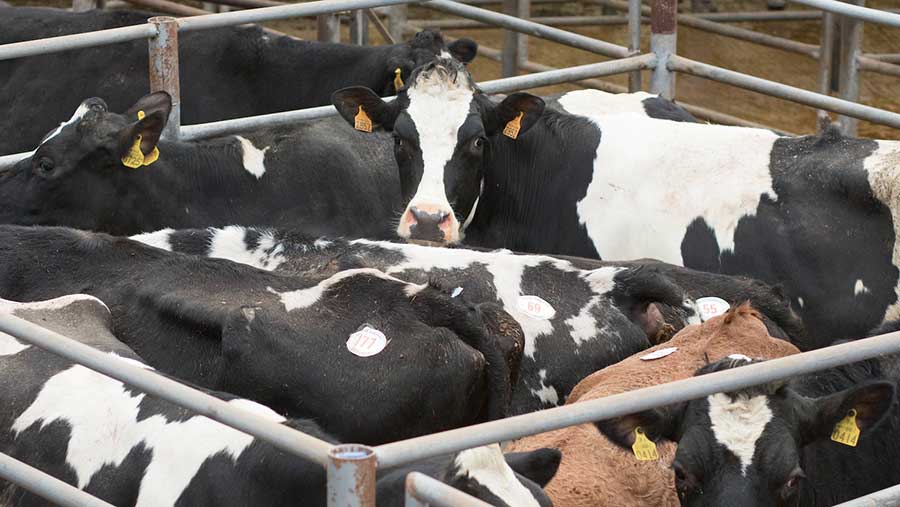Flying cull cow trade helped by dairy rebound
 © Tim Scrivener
© Tim Scrivener Cull cow prices have surged this year, as the impact of the dairy recovery ripples through to the meat market.
The British deadweight average jumped 4p/kg to 245p/kg in the week to 13 May.
This was 16% up since the start of 2016 and 22% better than the same time a year before.
At the marts, the liveweight average was 125p/kg last week – more than a fifth higher than twelve months earlier.
Lower numbers
The biggest driver has been lower numbers, with shrinking throughputs across the EU.
According to an AHDB report, the European cow kill rose sharply in 2016, in reaction to stubbornly poor milk prices. This sent the cull trade tumbling.
Since the start of 2017, the market has bounced back and, in every state apart from the Netherlands, prices are up on year-before levels.
Fewer cows have come to market, especially in the UK, where adult cattle slaughterings were down 5% on the year in March, at 50,300 head.
‘Urgent need’
The most recent report from marketing co-op Farmstock (Scotland) said cows were “urgently needed”.
There is not nearly enough volume coming out there,” said Farmstock senior livestock procurement officer Jonny Williams.
“For the milking guys, who generally pull out cows every week, the milk price is reasonable. So long as they are not problem cows, [farmers] are milking them as hard as they can.
“On the suckler side, the numbers are starting to trickle out. The quality is quite good. There is no real bottom end [-type cows].”
Hungry supermarkets
Along with the steadying in the dairy trade, British farmers have also benefitted from supermarkets hungry for cheaper beef and an exchange rate in their favour.
UK shoppers bought 3.5% more mince in the year to 24 April than they did in the previous twelve months.
The Brexit vote and, more recently, the French election have helped the euro gain ground on sterling. This time last year a euro was worth about 77p. This week it was worth just under 86p.
Clive Mahony, ruminant marketing specialist at co-op Meadow Quality, said this week cow prices had been more stable.
His recent market report noted demand was still running well ahead of available supplies.
“Post-French election the euro has strengthened, which has helped the export market [for UK beef],” Mr Mahony said. “But the other factor seems to be a shortage of manufacturing beef. There are not the cows coming forward.”
